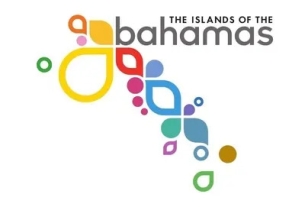 One remarkable characteristic of the month-long celebrations for the 40th Anniversary of the Bahamas’ Independence was the birth of four prestigious events that celebrate the Bahamian people.
One remarkable characteristic of the month-long celebrations for the 40th Anniversary of the Bahamas’ Independence was the birth of four prestigious events that celebrate the Bahamian people.
On July 22 at the National Art Gallery, the Bahamian Project showed the diversity of the Bahamian people through a selection of stunning black and white portraits by Duke Wells of Bahamians from diverse walks of life. The next day, Jones Communications Network chose to honour 40 young Bahamians in its “40 Under 40 Awards”.
On the following night, a selection committee from The Bahamian Icon Awards selected remarkable Bahamians that had had an impact on the growth of the Bahamian nation.
The last event will be the Real Men Ministries International Bahamas’ National Men Awards, to be held on August 2nd.
Never before has the country seen such a spate of events that puts the spotlight on a select few Bahamians to highlight the strengths, character and diversity of the wonderful Bahamian people.
Yet, among all the dignitaries, characters and notable Bahamian celebrities, there was one person that was featured or honoured in all four celebrations. No—it wasn’t an ex-Prime Minister or lawyer. It wasn’t a young musician or doctor, nor a love-giving social worker.
Among all the rising stars, professionals and long-time celebrities that this national has to offer, the one person honoured at all four events was a simple tradesman, one with no special acumen or college degree.
That person was Atario Mitchell, the humble 26-year old entrepreneur of Bahamas Striping fame, who got up each day to fight for the right to work in his own country. Mitchell was noted for giving back to his country even when he could ill-afford to be generous. He is also known to be zealous about training young Bahamians and giving them skills, or in his words, a passport to career.
But why is it significant that a mere tradesman-cum-entrepreneur, could scoop four national awards of such prestige? After all, the Bahamas has many young successful entrepreneurs—Mervin Sweeting of Switcha! Lemonade fame, is a good example.
Mitchell’s basic story is that he struggled to create a half-million dollar company from a $5,000 government grant in just three years. Remarkable as that story is, that’s not what illuminated the selection committees to put Mitchell on the national stage.
Mitchell is inspiring, not so much because of his company’s success, but rather because what he fights for. His prime struggle has been the right of Bahamians to work in their own country. Over the past three years, we’ve heard the constant complaint about how qualified Bahamian stripers were being usurped by foreigners who fly in to stripe Bahamian roads, when his team is lying idle. During the crisis of fighting these foreigners, he was told by one local Bahamian striper—whose company had already been destroyed by the same foreign multinational—that he’ll never succeed while that foreign striping company is still around.
In winning the Bahamian Icon Award for Commerce, selection committee member Debbie Bartlett said: “Atario Mitchell is special because he represents the future of the Bahamas— one that yields the dividends of hope, opportunity, compassion and increased ownership for Bahamians.”
“Mitchellis a centerpiece of the demonstrated power of diversifying our economy through visionary leadership, persistence, effective stewardship and entrepreneurship. He is a youthful leader who is inspiring change today for a better tomorrow,” said Bartlett.
Another judge for the Bahamian Icon Awards was Darren Turnquest, Director of Youth at the Ministry of Youth Sports & Culture. In describing why Mitchell won the Commerce award, he said: “In reviewing all the candidates, Mitchell stood out for several reasons. Here was a young man who was creative in his thinking with the kind of business he wanted to start and how he plans to expand. He is action-oriented to solve commercial problems. In an industry dominated by large, well-established companies, he broke through the ceiling.”
“We were impressed with his focus on training young men and being a good employer. He gives excellent service. Commerce should embrace the good of the community and Mitchell’s civil-mindedness speaks volumes. We awarded him for all those reasons,” said Turnquest.
In 2011 and 2012, the press was full of reports telling how Mitchell wasn’t able to stripe an inch of road on the nation’s largest-ever public highway system and how a big foreign contractor allegedly tricked him with promises that they reneged. His struggles with two big foreign companies and one large local paving company that took the foreigners’ side, assumed David versus Goliath proportions. His battle with the then government of the time, to be approved to work on Bahamian public roads was finally overcome after two years. Mitchell never gave up and eventually won.
Mitchell’s secondary principled fight was to give similar young men on his crew the skills to carve out careers. For the first time in his industry, Mitchell spent money searching for and importing overseas experts who could train his young crew—although he had little money to spare. He hired Brian Bostock, a certified striper from the UK who now runs Bahamas Striping’s training program. So far, more than 15 young men have been trained to various skill levels in the road striping trade.
Mitchell is magnanimous in that, although spending money on their training, he fully expects and even wants his crew to progress to levels where they can start their own enterprises and even compete with him. Based on love-of-country, Mitchell’s grand vision is to create a robust Bahamian road striping industry that could even export its services to the Caribbean. Mitchell believes there is more than enough striping in the Bahamian archipelago for four or five striping companies.
Mitchell believes that to combat massive unemployment and crime, equipping youth with training and skills are key. He says: “If we keep the young men busy, give them hope and a positive future, they’ll have an alternative way of earning and stay away from crime.”
Although Mitchell and his company have struggled in the face of foreign competition, the awards judges noted that he continued to donate to his country and hard-pressed sectors such as indigent families and the elderly. In Christmas 2012, he donated 400 toys to children, and 400 hams and turkeys to the elderly. And although grossing less than $100,000 per year at the time, he donated 6,000 bottles of water for NEMA to send to Hurricane Irene victims in the Family Islands.
Mitchell inspires his team to also donate their services. He tells his staff: “The country has given us the chance to be successful and put bread on our table. We should help in ways we can.” So, in the past 36 months his team has restored striping on 32 basketball and volleyball courts in various schools and communities, to a value exceeding $120,000.
At Abaco Central High School, where Mitchell spent hours playing ball as a student, he remembers how important just a single good court was for the youth of that community. When he got the chance, Mitchell flew back to Abaco and with the help of the students restriped the court and helped clean up the local park. Mitchell saw how proud the students were to have ‘the best basketball court in Abaco.’
That visit to Abaco also enabled Mitchell to address students at his old high school to encourage them that they too can make a success of their lives by keeping on the straight and narrow and working hard to get good grades. Several times a year, Mitchell gets involved with youth groups and schools to give encouraging speeches. In March 2013, he addressed students at RM Bailey High School to celebrate Commonwealth Day.
One thing about Mitchell that strikes a chord with many Bahamians—not just the awards selection committees—is that he is “ordinary”. Like thousands of young Bahamians men he became jobless when the economy tanked. He felt the fears of an uncertain future. But every day, he got up to fight. He surrounded himself with good people and good advisiors. He tapped into their knowledge and experience. He overcame obstacles and was determined. He had a plan and he worked hard. He didn’t spend his money vainly on bling, on nightclubs or girls. He resisted the temptations of the shallow life.
Although Mitchell is an “ordinary” young man, his story of hard work, sacrifice and determination is uncommon. His story is nothing miraculous or lucky: simply one based on applying good, old-fashioned values in a modern world.
When growing up in Abaco’s Murphy Town, Mitchell wanted to grow up and be a fisherman. He could dive deep. Today, Mitchell is still diving deep. The air of his inspiration is the well-being of his fellow Bahamians, especially our young men. That selflessness does deserve an award—or a few.
Source: Bobby Bower
CAPTION:
During the Bahamas’ 40th Anniversary Independence celebrations, four events selected Bahamas Striping’s president, Atario Mitchell, to be honoured. One of the prized awards was The Bahamian Icon Award for Commerce, which Atario won not only for his commercial success over the past three years but also for his struggle to find jobs for Bahamians, training young men, and “giving back” to the community.



